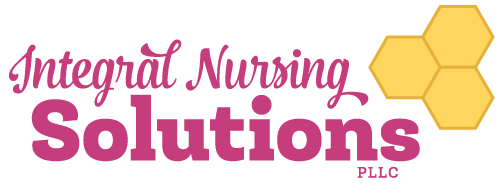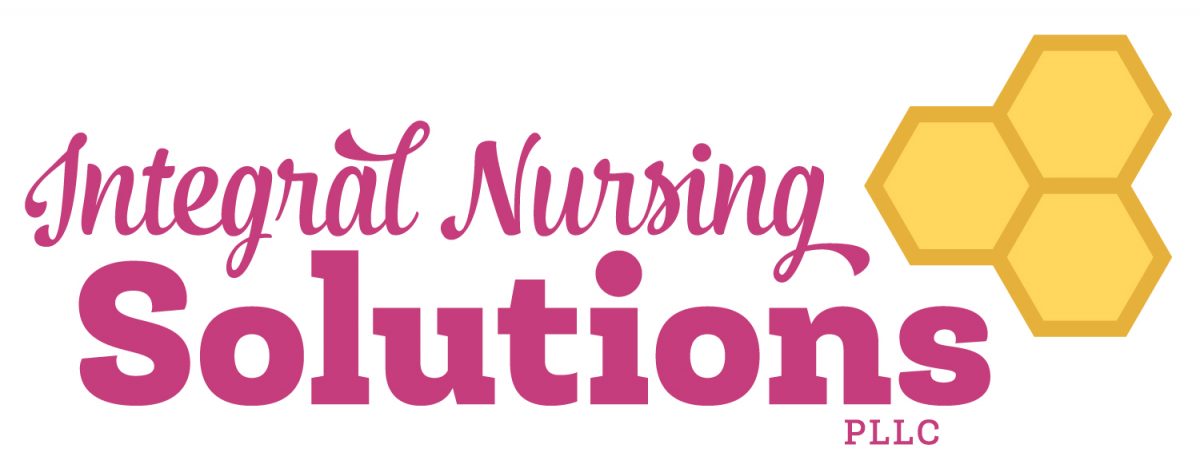Courage, Compassion and Community, was the theme of the Metta Institute’s Alumni Retreat last month.
 Courage, Compassion and Community, was the theme of the Metta Institute’s Alumni Retreat last monthLink http://mettainstitute.org/. It was a nourishing experience–and below are 7 useful points for nurses to contemplate since healing, survival, and growth occur in community. It is followed with 3 action steps with rationales for you to use. Finally there are 2 opportunities for community that I am currently offering. Please check them out.
Courage, Compassion and Community, was the theme of the Metta Institute’s Alumni Retreat last monthLink http://mettainstitute.org/. It was a nourishing experience–and below are 7 useful points for nurses to contemplate since healing, survival, and growth occur in community. It is followed with 3 action steps with rationales for you to use. Finally there are 2 opportunities for community that I am currently offering. Please check them out.
Dr. Rachael Naomi Remen planted seeds for the retreat in the opening presentation– exploring, contrasting and weaving 7 aspects of institutional healthcare teams and community.
- Usually membership in the health care team is by invitation, acquired deliberately based upon competencies of the practitioner who is quite replaceable. (Sometimes there is a sense of community on the team.)
- Teams and communities relate to risk differently– In a community when one succeeds, there is a sense that the whole community succeeds. This is often not the case on healthcare teams. They tend to be risk adverse.
- In a community there is a sense of belonging to a shared purpose. Purpose is different from goals and tasks. The members of the community may become experts as they move towards their shared purpose by addressing goals with tasks.
- People are often in community for different reasons than they are on a team. Members of the healthcare team, an assembly of chosen experts, may not embody the same purpose.
- Community does not end after the task is completed or goal met because goals and tasks are not what makes it a community. What matters to one, matter to everyone in the community.
- Teams produce something, and though a community may produce something it embodies something bigger. The purpose of the community is not finite.
- In community there is greater resistance to compassion fatigue, as people support each other differently than they do on a team.
In summary: The contrast between differing values around inclusivity is significant in that on a team your first contribution is your expertise and then yourself; in community your first contribution as a community member is yourself and then your expertise.
Nursing is about creating internal and external environments for healing and thriving. Generally we do it in community for ourselves and others. Sometimes the felt sense of community happens on the job, and if not what are you doing about your meeting your need for connection and community?
First you need to identify what you are looking for. Next set an intention to focus on it. Then take small steps to get there.
- Are your needs for community among nurses being met? Where and how? Take a moment to consider your interests and needs as a nurse. Of course there are the national organizations such as the ANA and AHNA, your state nursing organization, and of course there are the specialty organizations which can be helpful. They may however, feel too large.
- The experience of being in community meets a basic need for belonging. The key is finding your peeps, where and who is your community? There are lots of nursing communities available to support us thanks to social media.
- Create your own community by connecting to others on the web with your interests. For example, I discovered a community of nurse entrepreneurs offering all sorts of support to their colleagues through blogs and course offerings through virtual nursing chapters- Nurse Entrepreneurs, End of Life Care chapters on the AHNA website. With some searching you will other nurses also on the journey for community.
I have set the intention to create community opportunities for nurses locally and virtually.
- The Virtual Circles, that meet monthly, on-line, as part of the Vitality In Progress: Healing and Preventing Burnout for Nurses provide the caring supportive community during the 12-week program.
- The weekly community phone call on Wednesday nights, from 6:30-7;00 (712)432-3066 (PIN 177444) is another opportunity for your support from a community of nurses.
- I collaborate with my local AHNA Holistic Nurses Chapter.
Please share with us how you meet your needs for personal and professional community. Does it happen at work, on your job? Where and when do you get support for the beautiful work and service you offer? Looking forward to hearing from you~
Sending you blessings of delight and community with the changing seasons and in the next month.
With love, Padma

Self Care~ Sleeping For Success
Your long and short term success is impacted by your sleep. Getting adequate sleep is an essential self care activity that optimizes your potential by detoxing your brain and healing body organs and systems such as your heart and blood vessels. Let’s look at the new information about how and why getting enough sleep influences your body, mind and emotions. With this information about your precious brain, you may no longer believe and behave as if sleep is negotiable.
Physiology of the Glymphatic System
Your glymphatic system, similar to the body’s lymph system, removes toxins and metabolites from the brain, while you sleep. Researchers have observed that noradrenaline a fight-or-flight hormone is released in bursts when brain needs to become alert. Awake, your brain cells are busy processing information which creates waste products. The cells swell and are consequently closer together. And then, while you sleep there is an increase in cerebrospinal fluid (CSF) to your brain. Your brain’s glia cells, part of the glymphatic system, helps control the flow by shrinking the cells in your brain by 60% during sleep, thereby creating more space between the cells. Your CSF can wash through the brain tissue with greater ease,washing away harmful waste proteins like beta amyloid and tau proteins, and other molecules that build up between brain cells during waking hours. The glymphatic system carries the waste to the brain’s blood stream, which then transports them into the larger circulatory system to be removed through the liver and kidneys. Upon waking beta amyloid concentrations are decreased. Maybe it is no wonder that when we say “let me sleep on it”, we have a clearer mind to work with upon waking.
Effects of Sleep Deprivation on You Physical, Emotional and Mental Abilities

Body
When you don’t get enough sleep your reflexes are slower, you are at risk for high blood pressure, a weakened immune system, diabetes, low sex drive, heart disease, poor balance and weight gain. Here’s a fun fact: Dr. Helene Benveniste and her colleagues at Stony Brook University School of Medicine discovered that side lying is the best position for ridding the body of metabolic waste.
Emotional
When you are tired, not getting enough sleep, you are emotionally off balance and your decision making becomes poor. You may experience pessimism, anger, sadness, depression and grumpiness. Sleep deprivation does not feel good and you may find yourself eating for emotional reasons because the chemicals that make you hungry are in excess and chemicals for a healthy appetite are at low levels. Remember, sleep deprivation, taken to extreme, is a form of torture.
Mental
You may experience a mental fog if you are not getting enough sleep to detoxing your brain. Lack of sleep affects both your long and short term memories, which shows up as forgetfulness. Concentration, creativity and problem solving skills are dulled. Your decision making becomes poor. This is when accidents such as med errors and car accidents are likely to happen.
!Woops!
Ignorant about the importance of sleep, and mistakenly believing that multitasking was something to be proud of, I once was grazed by a car while working 3rd shift-not paying attention to the lights. Another time, I called the police because I forgot my daughter was at a class. We all got a good laugh later, but at the time, it was not funny. I was exhausted from not sleeping. I make better food choices and my dietary habits are healthier when I get enough sleep. In fact in 12 step programs,tiredness can be a trigger for addictive behavior as indicated by the term HALT ( hungry, angry , lonely and tired). So dear sister or brother nurse, I ask you honestly, “are you getting enough sleep?”
Getting enough sleep, essential to self care is a helpful tool in both a burnout prevention and burnout healing toolbox. And whether or not you sleep alone, healing happens best in a community who support you in your self care efforts to develop strong habits that maximize your potential. The next Vitality in Progress- Healing and Preventing Burnout for Nurses Program ( VIP program) starts May 6, 2018. Give yourself the gift of a supportive community and personalized mentoring as you develop a keystone practice that supports your happiness and well-being. Good nurses become great nurses when they take great care of themselves.
Give yourself the gift of a supportive community and personalized mentoring as you develop a keystone practice that supports your happiness and well-being. Good nurses become great nurses when they take great care of themselves.
Sending blessings to you for deep sleep and sweet dreams~~ waking refreshed, ready to start your day with enthusiasm, creativity and ease.
With love, Padma
.
Critical Thinking And Healthy Decision Making
By applying critical thinking and opening yourself to discovery, you become anchored in your own authenticity and truth in these tumultuous times. This is the 16th consecutive year that nurses have been voted most trusted professionals. Subsequently, reading Leah Curtin’s Lies and the Lying Liars Who Tell Them in American Nurse Today, got me wondering– how do you know who is telling the truth? Your eyes and ears are passive receivers, so as their owner you are in charge of the messages going into them- are your information sources trustworthy? Is the information you get evidence based? Daily you use the following 10 healthy mind habits in your nursing process to guide your professional and personal decision making. Using these 10 habits you demonstrate characteristics of critical thinking but you need accurate information to think critically to discern what is true and what is not.
confidence creative intellectual integrity open-minded inquisitive contextual perspective flexible intuitive persevering reflective
Who are the nursing, health care and political thought leaders you follow, and why?
Do they demonstrate healthy mind habits?
As a nurse, trusted for your clinical expertise, your critical thinking skills can also make you an informed health care advocate, speaking up for equitable health care for your patients and yourself. As funding for health care continues to be reduced, small health care clinics, doctors’ offices and home health agencies vie for precious funds to continue to offer their much needed services. Small organizations close and others are subsumed by larger organizations for survival in the current health care climate. What is happening where you work? Is your employer hiring? Are they downsizing? Are you paying more for less health care with increased deductibles and higher premiums? What are your thoughts and concerns about efforts to erode what some call “entitlements”, Medicaid, Medicare and Social Security?
Practical Application of critical thinking using healthy mind habits
Recently the organization I have been working with began reducing clinical staff, not filling vacant positions, rearranging the office staff, having people reapply for positions they held for years and closing parts of some departments. When my position evaporated, after applying the cognitive skills of critical thinking I made a proposal to the organization using the following 6 steps.
 Formulated my questions by reflecting on my needs, intuiting political and social changes, creatively looking for guidance from others. What were my options within the organization? Was there going to be a severance? Were there available positions that I might enjoy? What would other positions pay? Was this organization’s values in alignment with mine? What would be the scheduling? What would be the benefits?
Formulated my questions by reflecting on my needs, intuiting political and social changes, creatively looking for guidance from others. What were my options within the organization? Was there going to be a severance? Were there available positions that I might enjoy? What would other positions pay? Was this organization’s values in alignment with mine? What would be the scheduling? What would be the benefits?- Gathered information by keeping my mind open, reflecting and persevering.
- Applied the information by analyzing, reasoning and discriminating among different pieces of information that came my way. I anticipated the upcoming changes and related them to my questions and concerns.
- Considered the implications of my analysis in an effort to predict possible outcomes.
- Explored other options as part of gathering more information and decided what course of action I would take.
- Communicated effectively to suggest the best possible outcomes for me and the organization.
Now, awaiting a response to my communications, I feel confident that I have been truthful and maintained my integrity. By honing your mental habits and sharpening your critical thinking skills, you too can have the peace of mind that comes with telling the truth and maintaining your integrity. You may or may not be able to influence the outcomes.
Please share with us the steps or processes you use in making changes. What you share will probably help or be useful for a nurse colleague who is facing what you have faced.
 Sending you blessings for strong mental habits of confidence, creativity, intellectual integrity, open-mindedness, inquisitiveness, contextual perspectives, flexibility, intuition, perseverance and reflection!
Sending you blessings for strong mental habits of confidence, creativity, intellectual integrity, open-mindedness, inquisitiveness, contextual perspectives, flexibility, intuition, perseverance and reflection!
With love, Padma
Support your inspiration, your strengths and your vision~ sign up today!
Beginner’s Mind: Vaccination Against Burnout
Regardless of where you are in Brenner’s Stages of Clinical Competence, Novice, Advanced beginner, Competent, Proficient or Expert, having a Beginner’s Mind can be a vaccination against burnout. A Beginner’s Mind refers to an attitude of curiosity, a lack of preconceptions, and of non judgement and openness. Nurturing this attitude, which is so essential to self care, enhances your clarity and courage to explore your comforts and discomforts. With this approach you increase your ability to learn from mistakes, see new options and find creative solutions to your challenges.
Are you experiencing burnout because you are not in the right place for where you are in terms of Brenner’s 5 stages of competence? Putting yourself into new situations, challenging yourself to step outside of your comfort zone can trigger feelings of insecurity, fear, worry and anxiety. These feelings are usually the result of you judging yourself. In cultivating a Beginner’s Mind you can develop 3 antidote habits.
- You congratulate and celebrate yourself for stepping into the new.
- You engage with others who support you in your stretch towards the unknown.
- You label your experience of the feelings… fear, anxiety, worry, etc which takes out the judgement. As Thich Nhat Hanh says, “Feelings come and go like clouds in a windy sky,” and there is no need for criticism.
 When you were a baby learning to walk, it was not easy, and you kept trying and probably had the encouragement and support of others until the time when you were able to take your first steps. In the beginning no one judged or criticized you and you did not do that to yourself.
When you were a baby learning to walk, it was not easy, and you kept trying and probably had the encouragement and support of others until the time when you were able to take your first steps. In the beginning no one judged or criticized you and you did not do that to yourself.
Remember the last time you started something new- a job, a course, a hobby. There is an initial excitement and then your new learnings push you into uncharted territories where you need to ask for help and guidance to expand your understanding and mastery. Being a newbie generally takes more time to complete tasks and often triggers a sense of vulnerability with feelings of insecurity, fear, worry and anxiety. However, being new, with a Beginner’s Mind, you have an opportunity to see things in a fresh way. Singer, Songwriter, Phil Ochs, said he relished the first time he went to a new place because the first time can never be repeated- it was special. Cultivating patience and understanding for and with yourself now is so helpful in embracing whatever is new for you.
Choosing to value your vulnerability and the special vision of being a beginner, your Beginner’s Mind, deepens your experience of humility and opens you to seeing in fresh ways. Your preceptor, mentor or even the institution may actually appreciate your fresh perceptions and insights.
Over time, taking one step at a time, you learn the ropes, navigate the system, and become comfortable again. For the expert nurse, your Beginner’s Mind is probably already working because although each situation is new, you use your nuanced experiences to see a bigger picture and intuit the next step in a procedure, a leadership direction or piece of education you are offering a colleague, student or client. An expert, using Beginner’s Mind, discerns rather than judges between or among choices to find fresh perspectives.
As an expert using your Beginner’s Mind, new questions evolve when you check in with yourself. While there is comfort in being an expert, is maintaining that emotional comfort keeping you from actualizing your own potential? Are you so comfortable you are stuck and becoming part of the institutional furniture? Are you enjoying your work? Are you enjoying where you work? Are you appreciated by the institution and those you work with? Do you belong where you are at this time and why? If it is time for a change, are you making it or are you risking burn out? Remember, burnout can happen at any stage of your practice and career. A Beginner’s Mind can help you figure it out because you are not judging, you are taking one step at a time and honoring all your feelings and experiences by labeling them and addressing both fear of success and fear of failure.
At the recent National Nurses in Business Association meeting several speakers mentioned the idea that “You never change your life until you step out of your comfort zone.” Recently a nurse colleague took the current burnout survey and remarked in our follow up call how happy she was that there is a community of nurses supporting each other; that nurses are empowering themselves as they heal from burnout “because it is so needed”. I am taking a new per diem position in order to devote more time and energy to Integral Nursing Solutions. The 3 antidote habits of a Beginner’s Mind have vaccinated me against burnout and strengthen my courage and commitment to the changes I am making. I am hoping that my survey colleague will use her Beginner’s Mind to see opportunities for herself as she develops the courage to make the changes she is anticipating.
I am looking forward to partnering with you on your journey to strengthening your commitment to your own self care which can begin by appreciating and developing your Beginner’s Mind and begin the vaccination against burnout. The next Vitality in Progress: Healing and Preventing Burnout for Nurses will support your development of your Beginner’s Mind attitude and consequent abilities to live outside of your comfort zone.
Early bird registration ends 12/31/17
Course starts 1/21/17
Self Care for Vitality Free Virtual Connecting Weekly Call-in for Nurses
 Join us on our weekly zoom call.
Join us on our weekly zoom call.
We present practical tips and strategies for Self care on a variety of topics to heal and prevent burnout such as: setting boundaries, balance, healing, self love, vulnerability, and other topics as they arise. There is a short guided relaxation, followed by a short time for silence in community and optional sharing to prevent and heal burnout. It’s free to all and you can join in with a share or just listen in.
Wednesdays 6:30-7:00 pm EST
Join from PC, Mac, Linux, iOS or Android: https://zoom.us/j/759784768
Or iPhone one-tap: US: +16468769923,,759784768# or +16699006833,,759784768#
Or Telephone: Dial(for higher quality, dial a number based on your current location):
US: +1 646 876 9923 or +1 669 900 6833
Meeting ID: 759 784 768
Have a great week, take good care of your precious self in these most challenging times.
With love,
-Padma
Nurse Burnout – The Silent Job Killer
Nurse Burnout – The Silent Job Killer
Nurse burnout was slowly killing my love for my job as a nurse. It was a silent killer that grew gradually day by day. It just seemed like I started to dislike my job more and more. I started to feel lethargic about coming to work. The utter joy and compassion that I had experienced in the beginning of my career started to fade day by day. This is dangerous because as nurses we are the symbol for compassion. Who wants to be treated by a nurse who just doesn’t care about them? I had to ask myself “What was happening to me?”
 I began to feel hopeless. I began to fear that I hated my job. That’s when the panic set in. After all of the years that I had devoted to this profession, I was suddenly willing to leave it all in a heartbeat for something else. I was on the very edge. I didn’t want to give up so easily, however, I began to research what I was feeling in an attempt to save my love for my job.
I began to feel hopeless. I began to fear that I hated my job. That’s when the panic set in. After all of the years that I had devoted to this profession, I was suddenly willing to leave it all in a heartbeat for something else. I was on the very edge. I didn’t want to give up so easily, however, I began to research what I was feeling in an attempt to save my love for my job.
Nurse burnout – The problem affecting nurses everywhere.
Burnout is categorized as physical, mental and emotional exhaustion, according to National Nurses United. In addition to signs of exhaustion, the person with burnout exhibits an increasingly negative attitude toward his or her job and sometimes their own personal value.
Nurses and other practitioners in the human services fields are at great risk of burnout and vital exhaustion in part due to the high-stress work environments, and the emotional demands of their jobs. With information, intention, and support you can assess your self-care practices, compassion fatigue, burnout, and vital exhaustion.
Dr. Rachel Remen, nuances our understanding with, “We burn out not because we don’t care but because we don’t grieve. We burn out because we’ve allowed our hearts to become so filled with loss that we have no room left to care.
With that being said what is the solution?
If you feel like you are affected by nurse burnout just like I was there may be a solution. As a Certified Advanced Holistic Nurse and Certified Hospice and Palliative Care Nurse. I’ve experienced these symptoms first hand. Long hours, too many patients to keep up with and the bureaucracy of some of the hospital and care systems was truly overwhelming. Over the course of 40 years working in a variety of settings, I’ve come to understand that nurses have to care for themselves as much if not more, than they care for their patients. I’ve grown over these past few years.
and Certified Hospice and Palliative Care Nurse. I’ve experienced these symptoms first hand. Long hours, too many patients to keep up with and the bureaucracy of some of the hospital and care systems was truly overwhelming. Over the course of 40 years working in a variety of settings, I’ve come to understand that nurses have to care for themselves as much if not more, than they care for their patients. I’ve grown over these past few years.
I’ve learned to take time out of my morning for meditation, exercise, and reflection before I start what I know will be a busy day. During the day I know that taking time, even if it’s just a few extra seconds to linger while washing my hands in between patients can benefit both me and the person I’m caring for. I’ve learned to get enough rest, eat well, and enjoy my time off.
I now have greater clarity and focus for practical and useful solutions that enable me to provide better patient care. I am a better teammate and colleague at work and a more loving mom.
All of this came as the result of creating this program to help nurses like myself. I’ve worked with a number of mentors to hone this amazing program and I cannot wait to share it with any and everyone.
This VIP program is an excellent way to recover from or prevent burnout. Using our own nursing process, you can empower yourself with interventions that nourish your well-being. The program encourages relationships, mutual learning, and provides a variety of tools for self-care. Maybe you will want to share your discoveries, thereby empowering not only yourself but others.
Here’s how the program works:
Individualized Mentoring: Biweekly individual phone support, mentoring and guidance with instructor.
Self-Care:Your chosen self care tools are supported with weekly emailed readings and audio-visuals that stimulate reflection, inspiration and insights.
Virtual Community: 1.5 hour monthly group vitality circle- a place to come together for connection, support, and healing in community. (total 4.5 hours)
Wondering if you’re suffering from Burnout?
Click this link and answer these Questions to find out >: Is Burnout Affecting Me?
Developed from: PROQOL UPLOADS
RN’s and LPN’s who successfully complete the program can qualify for 39 CNE’s from the American Holistic Nurses Association which is accredited as an approver of continuing nursing education by the American Nurses Credentialing Center’s Commission on Accreditation.
Testimonials:
“This class took me from intellectually knowing what to do about
burn-out to actually practicing better self-care. ”
– TR, VA Hospital, Asheville, NC
______________________________________________
“Before, I was exhausted. I have redirected energies to take care of myself which allows me the energy and ability to care for others and to hopefully pass this along to co-workers, clients, family and friends.”
– SC, Pardee Hospital, Hendersonville, NC
_______________________________________________
” I am so grateful to have participated in the VIP program. Not only am I finding more ease in the hospital working on a medical surgical telemetry floor, I’m finally able to feel more of a balance in my personal life.”
– AL, Park Ridge Hospital, Hendersonville, NC
Owner and Creative Director, Padma Dyvine, is a Certified Advanced Holistic Nurse and Certified Hospice and Palliative Care Nurse. Applying over 40 years working in a variety of settings, Padma inspires with loving support, nurses in all work settings to embrace their authenticity as they move forward in their careers finding balance in their personal and professional lives and organizations in their support of their most valuable asset, their nurses.
Wondering if you’re suffering from Burnout?
Click this link and answer these Questions to find out >: Is Burnout Affecting Me?
Developed from: PROQOL UPLOADS
5 Ways to Get Unstuck, Open to Opportunity and Choreograph Your Dance
Now is a great time to begin reflecting upon the past year, the challenges you have risen to, those you avoided and the goals and opportunities calling you in the new year. In the last 20-30 years nurses have been developing new specialties such as nurse coaching, end of life doula services (separate from hospice employment), expert witness services for litigation, in addition to APRN’s hanging out their own shingles. Today there is wonderful business support for and by nurses for those who decide to make the leap for independence. The health care industry is exploding with expanding technologies while the internet and social media are opening new doors beyond the traditional nurse work venues – hospitals, clinics, military, airlines, camps, universities etc. Nurses everywhere bring diverse skill sets, re-purposing them for innovation and improvements that benefit not only nurses, but those we serve. Change is the operative word in the world we live in these days. What are you doing for yourself and those you serve to manifest your creativity and joy? Are you holding yourself back and if so what habits and thoughts do you engage to keep you stuck? How do you approach the change, if you are to become unstuck?
Whether or not you are considering moving out of the traditional venues of practice, facing your personal obstacles to change is the critical first step. In taking care of your essence and your spirit, your soul is required for making healthy decisions. If your brain is in a food fog, or a drug fog, if you are not getting enough sleep, if you are angry and unhappy at work more than you’d like to be, if you are not communicating effectively with your colleagues or you have been procrastinating maybe this will be the year you develop your keystone practices so you can show up for yourself and those you love.
5 Ways to Get Unstuck, Open to Opportunity and Choreograph Your Dance
1. Don’t believe everything you think. (The mind thinks all sorts of contradictory thoughts.)
2. Recognize perfectionism as a form of procrastination.
3. Change offers expanded vision and refreshing growth, though it may not be comfortable.
4. Curiosity shifts you from the restricting habits of criticism and judgement.
5. You will bloom in community~ get the support you need from those who believe in you.
I used these 5 steps recently. I was considering going to the National Nurses in Business Association (NNBA) conference. The loud voices in my head were saying such things as, “you are too new, you need to hone your business skills more, you need to get more skilled with social media… etc.” Not believing everything I think, committed to living with my felt experiences of discomfort and moving beyond my comfort zones at work and at home, I realized the fears I felt were from old mindsets and a longing for comfort. With the insightful questions and the support of friends and my business coach, the power of curiosity took me to a new and interesting space. I began to wonder who would be there, how I could move INS forward to reach more nurses, helping them to heal and prevent burnout. The criticisms and judgments, obscurations of fear, shifted. Empowered by curiosity and open to adventure (and the expectation of a visit to the Gulf of Mexico), I booked a flight and a room in sunny St. Petersburg to attend the 2017 NNBA conference. Upon arrival I discovered many gifted, empowered, generous and inspiring nurses. (Generally that is who we are though, right?) Nurses with established successful businesses (some 6 figures) guided and educated their colleagues by their sharing tips, strategies and recipes for success. There was mutual support in developing business ideas and ways to pursue creative solutions to all sorts of health care situations, patient and staff needs.
Whether or not you are interested in becoming an entrepreneur, it is so important to find a community to support you in articulating and manifesting your dreams. A community who with kindness and gentleness challenges your desire for comfort and your habitual thoughts, encouraging you to be and do your best. It is important to spend time with yourself so that you can nourish your creativity and your spirit to find the wisdom that resides within you. Becoming curious whenever you notice yourself judging or criticizing yourself or another will open your own colorful horizons of love, peace as you become increasingly intimate with yourself. Accepting yourself where you are, knowing that you are always doing your best which looks different on different days is a huge step towards moving away from the saddle of procrastination and its harness of perfectionism towards participation in the wild dance of your life.
Sharing is a way of setting up accountability for yourself. Last year I committed to my community that INS would offer the VIP program (Vitality in Progress program) 4 times and I would write a blog every week. Well, we offered the program 3 times and ran it once. Realizing we need to market more, I have written 43 blogs, made a vlog, hosted 3 guest blogs, wrote a guest blog, hosted 51 Self Care for Vitality phone calls, 2 radio interviews all to market INS so we can serve you. We want to support you in developing your keystone habits, preventing burnout and assisting you in your healing journey if you are experiencing vital exhaustion. Not too bad for just starting out and next year will be even better! The VIP program needs more marketing and you can help us by getting the word out about how much you have gained from the program, which we will add to our testimonial pages. We will continue to offer content by writing more blogs, providing more VIP programs, more radio shows and we are adding speaking engagements to support you and your colleagues.
Please join us in sharing your challenges from this past year and how you met them. Count us as part of your community support. Inspire yourself as you inspire us by stepping up to share with us your dreams and goals for the next year.
 Vitality in Progress: Healing and Preventing Burnout for Nurses the 9 week program that supports nurses in developing their own personalized keystone practices of Self care. With successful completion, you receive 39 ANCC approved CNE’s in addition to meeting wonderful peers and receiving bi-weekly mentoring! Check us out, as the next series starts in January 2018 and there is an early bird discount.
Vitality in Progress: Healing and Preventing Burnout for Nurses the 9 week program that supports nurses in developing their own personalized keystone practices of Self care. With successful completion, you receive 39 ANCC approved CNE’s in addition to meeting wonderful peers and receiving bi-weekly mentoring! Check us out, as the next series starts in January 2018 and there is an early bird discount.
In the meantime, if you want to see what we are like, join our Free Virtual Connecting Weekly Call-in for Nurses

Have a beautiful week in reflection, contemplation, getting unstuck, opening to opportunity, visualizing your goals and successes for the coming year choreographing your own dance!
With love, Padma
Blainesworld Radio Interview w/ Padma Dyvine
![]() I had a wonderful experience sharing about how Integral Nursing Solutions helps nurses by giving them the tools to avoid or recover from burnout. Below is a picture we took at the station and a link to the interview itself. Would love your feedback!
I had a wonderful experience sharing about how Integral Nursing Solutions helps nurses by giving them the tools to avoid or recover from burnout. Below is a picture we took at the station and a link to the interview itself. Would love your feedback!
Love,
Padma

Empower Your Self by Addressing Your Eating Issues
For some of us Self care around food and eating creates a conundrum. Competent and successful in most areas of life, if you cannot stop eating when you are full… or despite knowing a lot about nutrition, you are unable to apply that information, you may have an eating disorder and you are not alone. According to the ANA Healthy Nurse, Healthy Nation website, there are 3.6 million nurses, and we “are less healthy than the average American. Research shows that nurses are more likely to be overweight, have higher levels of stress, and get less sleep.” Self care supports your ability to respond rather than react to the circumstances of your life. It enhances your sense of integrity with yourself, nourishes your sense of well being and may be reflected in positive self-esteem, having energy, and feeling connected to others. Is self care around the topic of nutrition a huge challenge for you? If you experience discouragement, shame, confusion and depression related to your weight, if you cannot eat like “normal people” and your weight is unhealthy for you, you may have an eating disorder, and you are not alone. 
Eating disorders are now recognized to be both medical and psychiatric and serious health issues. Eating disorders affect men and women, can occur at any time in the life span and the symptoms can be quite varied. It is beyond the scope of this blog to go into the details of the various manifestations eating disorders other than to say Eating Disorder Not Otherwise Specified (EDNOS), has been revised and refined in the DSMV to Other Specified Feeding and Eating Disorder (OSFED). It is applied when an individual’s symptoms cause significant distress but do not fit neatly within the strict criteria for anorexia, bulimia, ARFID , Binge Eating Disorders (BED) or Compulsive Overeating. For most people, admitting to having an eating disorder is difficult and emotionally painful. For some, their eating disorders may be or will become addictions. However, knowing that it is not just a matter of willpower, self control or a moral issue can remove some of the stigma. You have a treatable disease and you are not alone. With support in living with the disease of an eating disorder, you can get help in applying all of the accumulated information you have about healthy eating. You can recover. Your recovery is Self care.
I remember sneaking back to the break room to get more of whatever was in there. I remember staff gatherings where I was paying more attention to the food on the table than to my interesting and caring colleagues who brought in their favorite specialties. I sensed something was wrong with me because I could not stop eating once I started. I tried many diets and eating behaviors to try to gain control of my intake. Puzzled by this, I eventually began to experience shame as I could no longer manage not only my eating but the weight. Years later, I came to understand that I had an eating disorder.
Here are some of the symptoms of Compulsive Over Eating, BED and OSFED:
- Regularly eating large amounts of food and unable to stop when you feel full- experiencing a lack of control.
- A constant concern about food and weight, restricting food and obsessing about caloric intake.
- Do you meet the diagnostic criteria for anorexia nervosa, but your weight is in the normal range?
- Meet the diagnostic criteria for anorexia nervosa, but still having your period.
- Chewing food and then spitting it out, or vomiting to maintain a normal body weight.
- Eating normally with others and then eat more when you are alone.
- Sneak eating.
- Eating quickly so that you can eat more before feeling full.
- Experiencing embarrassment, guilt, disgust, depression and/or shame over your inability to control your eating after an episode of over eating.
- Obese and at risk for the consequent health issues of heart disease, diabetes type II, joint and muscle pain, cancer, osteoarthritis etc. and unable to get a handle on getting to a normal weight.
- Feeling like you are alone with your eating issue.
If you think you might have an eating disorder, you have a number of options. You can discuss this with your primary care provider. You can check out Over Eaters Anonymous which despite the name, welcomes all who have issues with food by working a 12 Step Program which is “a spiritual solution to a physical problem”, you can do nothing about the issue and of course you will continue to explore the issue until you find a solution that works for you.
 Vitality in Progress: Healing and Preventing Burnout for Nurses is a 9 week program that supports nurses in developing their personalized Self care plan. Some participants have chosen to address their eating patterns in the program. With successful completion of the program, you also receive 39 CNE’s! Check us out, as the next series starts in January 2018 and there is an early bird discount.
Vitality in Progress: Healing and Preventing Burnout for Nurses is a 9 week program that supports nurses in developing their personalized Self care plan. Some participants have chosen to address their eating patterns in the program. With successful completion of the program, you also receive 39 CNE’s! Check us out, as the next series starts in January 2018 and there is an early bird discount.
In the meantime, Join our Free Virtual Connecting Weekly Call-in for Nurses
Please share with us your experiences of your challenges with healthy eating and the solutions you have found.
Have a beautiful week taking good care of your precious Self by eating healthy foods in moderation.
With love, Padma
Other Resources:
Nurses and Addictions: https://www.drugrehab.com/addiction/nurses/
A Nurse’s Guide to Eating Disorders http://onlinedegrees.bradley.edu/nursing/dnp/a-nurses-guide-to-eating-disorders/
Take Refuge in Your Professional Ethics
Your professional ethics support you when you lean on them with skillful speech. Professional behavior takes you on the “high road” by employing integrity. As a professional you are honest, do no harm, competent, accountable, and self-regulated. As health care budgets are cut and more work is expected of fewer nurses, speaking up for justice and ethical behavior is not always easy. 3.6 million nurses strong, the profession has resources to keep you on track to have a strong ethical voice when it comes to health care issues.
Comparing current events to the rise of Nazism and Fascism in the 1930’s, Yale Professor Timothy Snyder reminds us in On Tyranny: 20 Lessons from the 20th Century, “when political leaders set a negative example, professional commitments to just practice become more important…. If members of professions think of themselves as groups with common interest, with norms and rules that oblige them at all times, then they can gain confidence and indeed a certain kind of power.” (p. 40) In 2015 the ANA took an unequivocal stand on the issue of incivility and bullying in the work place. Nurses are required to “create an ethical environment and culture of civility and kindness, treating colleagues, co-workers, employees, students, and others with dignity and respect.” Similarly, nurses must be afforded the same level of respect and dignity as others (ANA, 2015a). The ANA has also taken a thoughtful and strong stand on health care reform.
Although there are no federal standards that require workplace violence protections, several states have enacted legislation or regulations aimed at preventing workplace violence. What does your state have in place? You need strength and clarity to stand up for yourself and others when in a toxic situation of incivility or bullying. The 4 Gates of Speech will guide and support your ethical behavior when you are told the situation is exceptional, or you are asked to do something that is immoral and puts your license at risk.
4 Examples:
- I was a hospice nurse in a rural area. The company was having many different economic and staffing difficulties. My census was increased to way beyond what was safe or reasonable.
With some trepidation, I explained to my supervisor that I could not take the next admission because it was not safe for me or for the patient. The admission was given to another team. Safe RN ratios have been proven to improve the quality of care and nurse recruitment and retention in California hospitals which is the only state that has mandated nurse/patient ratios. My experience of speaking up to my supervisor was very empowering. It also was a good example to my peers.
2. An APRN colleague recently relayed the following experience: After her report in the monthly meeting, the supervisor criticized her in front of the team such that she felt “shamed, embarrassed, humiliated and undermined”. The APRN later went to the supervisor. She explained to her that if she had a criticism, she should tell her privately. The supervisor has not humiliated the APRN since, but continues her uncivil and bullying behavior with others.
Our beautiful profession of nursing is about reducing suffering and building on strengths towards increased well being for nurses as well as those in our care. Using the 4 Gates of Speech you can confront difficult situations with clarity and confidence.
Is it true? Is it necessary? Is it kind? Is it the right time and place?
Using these gates let’s unpack the APRN’s situation. We don’t know if the criticism was true or was necessary. However, the supervisor clearly chose the wrong time and place and was not kind. The APRN spoke her truth to establish her professional boundaries and consequently was teaching the supervisor how to behave professionally. She did not share her feelings of being undermined, shamed and embarrassed. (Under other circumstances sharing feelings might be useful.) The APRN found a place that allowed for privacy but we don’t know if the time was mutually satisfactory. The APRN spoke in a way that was professional, which is, kind and beneficial. Her speech and action set an example to prevent future occurrences of incivility to herself and others.
3. In the 1980’s I worked in a small city hospital that began to change its identity from a neighborhood hospital to a corporate model. Nurses’ benefits were cut and nursing positions were eliminated in addition to other cost cutting efforts at the expense of patient care.
It was the nurses’ professional behaviors- how we spoke to each other, what we said, where we said it, and the actions that followed that convinced reluctant nurses to reconsider their positions. Taking the “exceptional” stance: “just for now and the situation will change”, the cuts continued. The nurses discovered that advocating for their patients, they were also speaking on their own behalf. Eventually a nurses union was voted in and the nurses had a voice at the bargaining table and negotiated improvements on behalf of themselves and their patients. At the end the nurses remarked what an empowering learning experience it was for all.
4. More recently remember the arrest of University of Utah Hospital nurse Alex Wubbels on July 26, 2017. She was defending her patient’s right to not have his blood drawn without consent. It would have been an ethical breach to not have done so. Having to speak up to law enforcement officials, which can be difficult given their positions of authority and power, her actions have given everyone an excellent and extreme example of advocacy.
The bottom line is that if your license is at risk, you are facing an ethical dilemma.

When you see something that is not professional or right, do you deny it, turn away or stand up? What gives you that strength and courage to stand up for yourself and others? As you reflect on your career, please share with us your experiences of professional risk and how you handled it.
In the VITALITY IN PROGRESS: HEALING AND PREVENTING BURNOUT FOR NURSES
90 day program, participants strengthen their advocacy skills with 3 Self-care habits,
sharing in an accountability community and with individualized mentoring.
With successful completion, the nurse also receives 39 credits!










